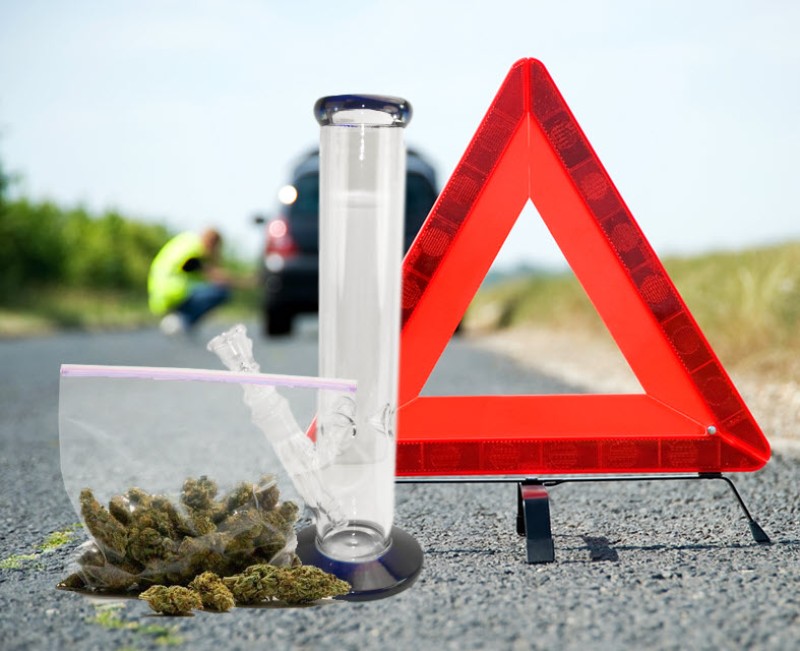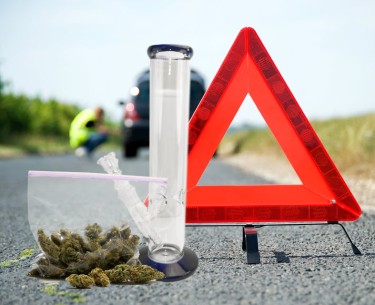Marijuana prohibition is gradually fading in several states in America. Every election day, more states and localities take steps to regulate or even legalize the medical and recreational use of marijuana. The evolving legal status of marijuana use raises various concerns amongst some groups. As things are, several states have a "no tolerance" policy, which means that if you have any marijuana in your system, you can be charged with driving while intoxicated. But still, cannabis skeptics are quick to blame the relaxation of cannabis laws for the constant rate of traffic accidents. However, insurance actuaries say cannabis legislations are far from being the primary cause of traffic accidents.
The Study
According to recent research from the Canadian Institute of Actuaries (CIA) and the Casualty Actuarial Society (CAS), pot legalization is not connected to an increase in road accidents or the severity of crashes. More accurate predictors of car accidents are periodic patterns of human activity (annual, weekly, and daily cycles) and adverse weather.
The report titled "Assessing the Impact of Marijuana Decriminalization on Vehicle Accident Experience" examined the impact of marijuana legalization and regulation on vehicular fatality rates, insurance claim frequency, or average cost per claim in the United States and Canada and found no no statistically significant effects of decriminalization.
The actuarial associations stated in a media release that there were no appreciable alterations to the trend and seasonal fluctuations in car crashes in Canada following the change in national law. Similar to the assumptions, there is no evidence from the estimated statewide effects of legalization in the United States to suggest an increase in traffic accidents or fatalities was a result of decriminalization.
The study found that even though cannabis impairment does have an impact on driving behavior, the behavior isn't always dangerous. The study's findings were based on a review of prior literature as well as a new data analysis. For instance, a 2016 study revealed that cannabis users who were aware of the harm were more cautious, drove more slowly, etc.
U.S. and Canadian data from 2016 to 2019 were used to create the statistical models, including official records of accidents involving private vehicles and damages in Canada, traffic fatalities, and weather-related factors in the United States.
These findings are partly consistent with driving simulator data that was published in the June 2022 issue of the journal Traffic Injury Prevention and showed that frequent cannabis users really drive better than occasional users.
Similar Studies on the Impact of Cannabis Reforms on Traffic Accidents
Previous studies in this last category have produced varying findings, the report claims. The actuarial report also documents seven of these studies and concludes that most of them did not find adverse effects of marijuana decriminalization on vehicle accidents. The actuarial paper indicates that these earlier studies had a few flaws.
The actuarial report also claimed that certain earlier research had numerous flaws, like focusing on a single subject or employing a single statistical method. The paper states that "several other publications examine relative change without the total impact," citing a 2015 study that looked only at the number of drivers who came back positive for THC and not the number or severity of auto accidents.
However, there is earlier research with contradictory findings. For instance, studies from 1993 to 2003 (the National Highway Traffic Safety Administration's Fatality Analysis Reporting System) showed that motorists who tested positive for cannabis in the 5% of drivers aged 20 to 50 were more likely to drive too fast, recklessly, and disregard road signs.
It's also vital to keep in mind a different study conducted by the Coalition for Cannabis Policy, Education, and Regulation (CPEAR) in July 2022, which found that the legalization of cannabis did not result in a rise in impaired driving. Although the group emphasized that additional study and improved data collecting are required, the paper claims that decriminalization had either no effect or a drop in driving while intoxicated (DUI) a year after the legal industry was established.
Assessing the impact of similar factors on traffic accidents in the future
The actuaries developed a systematic method for evaluating similar patterns of future developments, such as the decriminalization of other drugs or the adaptation of self-driving car models, in addition to offering new insight into the effects of marijuana decriminalization on the experience of car accidents and possible ramifications for the insurance sector.
First, they advised that the authorities should put relevant controls in place to monitor and accurately quantify the impact of cannabis regulation in medical and adult-use legal states.
If quality series of sufficient length is provided for both periods, the actuaries explained that the control might be of the same region (before and after decriminalization) or comparable regions for relatable comparisons.
Lastly, gather information on the number, kind, and severity of traffic crashes. For accuracy, it is also necessary to obtain details regarding potentially confusing circumstances, such as the weather, the period of day and week, the motorist's age, and their gender. Utilize statistical methods to estimate the impact of marijuana legalization while accounting for confounding variables.
The report's author, Dr. Vyacheslav Lyubchich, explained how extensive this investigation was. "This study used a variety of data science tools, including machine learning, enhanced statistical models, and other methodologies. To cater to the influence of weather conditions, the models used elevated weather data.
Last Notes
Driving while distracted, drunk, and tired, bad weather conditions, speeding, wrong turns, running red light, bad roads, road rage and careless driving are other factors responsible for a significant rise in traffic accidents everywhere in the world.
Unfortunately, media coverage and anti-cannabis groups downplay the roles of these other factors to find fault in cannabis legalization and regulation. Rather than blame the rising medical and cannabis usage, the bodies responsible can utilize the recommended methodologies above to track cannabis related accidents as more states continue to implement their cannabis laws. In addition to this, there should be regular sensitization to caution drivers against road hazards and driving while distracted.







